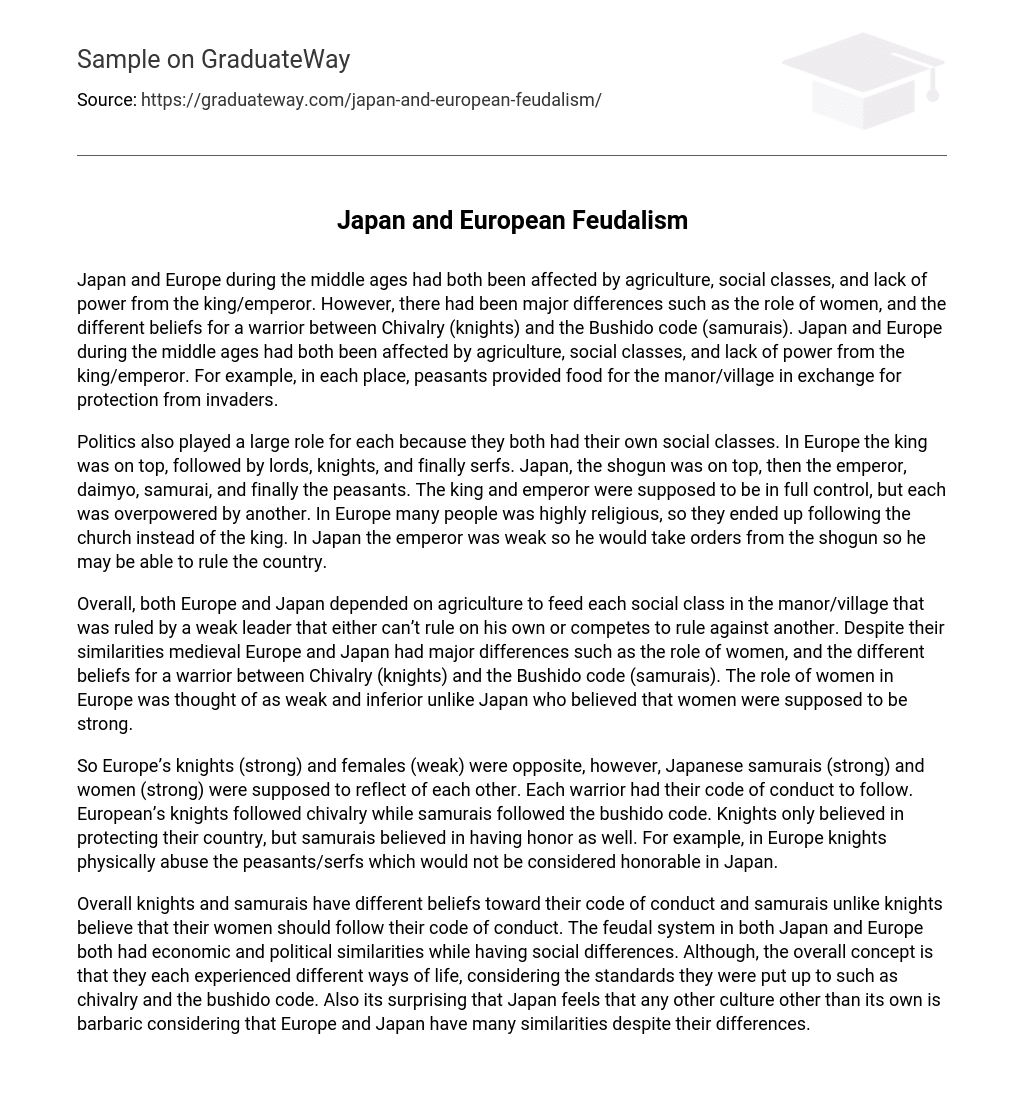During the middle ages, both Japan and Europe experienced similar effects of agriculture, social classes, and lack of power from their respective kings/emperors. However, there were significant differences in the role of women and the beliefs surrounding warriors. For instance, in Europe, knights followed the code of Chivalry, while in Japan, samurais adhered to the Bushido code. Nevertheless, both regions relied on peasants to cultivate crops and ensure protection from invaders in exchange for providing sustenance for the manor/village.
The social classes in both Europe and Japan were influenced by politics. In Europe, the hierarchy included the king, lords, knights, and serfs. Similarly, in Japan, the shogun held the highest position followed by the emperor, daimyo, samurai, and peasants. Although both the king and emperor were theoretically supposed to have complete control, they were overshadowed by others. In Europe, people’s strong religious beliefs led them to prioritize following the church over the king. Conversely, in Japan, the emperor’s power was limited so he took orders from the shogun to effectively govern.
Generally, Europe and Japan relied on agriculture to sustain each social class in the manor/village governed by a weak leader who either lacked the ability to rule independently or engaged in competition for control. Although medieval Europe and Japan had similarities, they also displayed significant differences in terms of the status of women and the contrasting principles of warriorhood encompassed by Chivalry (knights) and the Bushido code (samurais). Unlike Japan, where women were regarded as strong, European society perceived women as weak and inferior.
Europe’s knights were considered strong, while females were seen as weak. On the other hand, Japanese samurais were both strong and women were also seen as strong. Each warrior group had their own code of conduct to adhere to – knights followed chivalry, while samurais followed the bushido code. Knights prioritized protecting their country, but samurais also valued honor. For instance, in Europe, knights would physically mistreat peasants/serfs, an act that would not be regarded as honorable in Japan.
In general, knights and samurais have contrasting beliefs regarding their code of conduct. Unlike knights, samurais believe that their women should adhere to their code of conduct as well. The feudal system in both Japan and Europe shared economic and political similarities, but had social differences. Despite these differences, both societies experienced distinct ways of life based on their respective standards such as chivalry and the bushido code. It is also noteworthy that Japan views any culture other than its own as barbaric, despite the numerous similarities between Europe and Japan.





